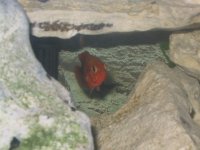Hi there,
today I took some water to my LFS and had the water tested on a tank i', cycling ph was 8.2, amonia 0, and nitrate is 10ppm. I also calibrated my ph testerin ph7 test solution. No the thing is when I got home I tested my tank and it came out as ph7.9
Now why was this?
Regards Darren
today I took some water to my LFS and had the water tested on a tank i', cycling ph was 8.2, amonia 0, and nitrate is 10ppm. I also calibrated my ph testerin ph7 test solution. No the thing is when I got home I tested my tank and it came out as ph7.9
Now why was this?
Regards Darren






